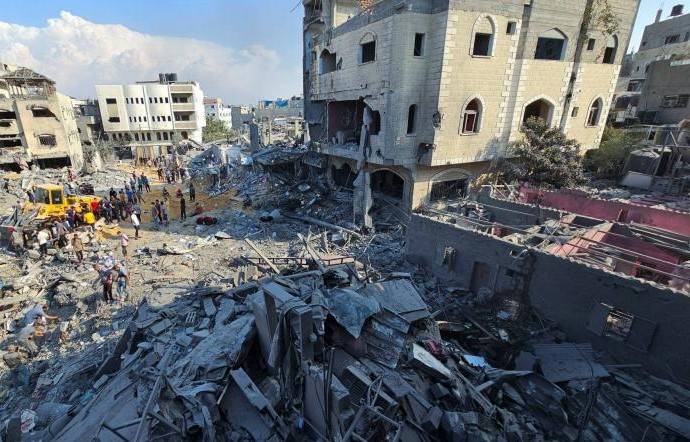Following the arrival of the Egyptian security delegation in Tel Aviv yesterday to advance discussions on a prisoner exchange between Israel and Hamas and a ceasefire in the Gaza Strip, positive signs have emerged. An informed Israeli source indicated that it is possible to reach an agreement on the Egyptian proposal within days, despite reservations from Israeli Prime Minister Benjamin Netanyahu, as reported by Israeli Broadcasting Authority on Saturday.
The source mentioned that the majority of Netanyahu's government now supports the terms of a new deal proposed by Egypt, which has been conveyed to Hamas in hopes of reaching an agreement for a prisoner exchange and a temporary ceasefire. Israeli officials revealed that "the security establishment and most of the political level have supported the deal according to the Egyptian plan, which calls for the release of between 20 to 40 Israeli captives in exchange for a ceasefire lasting one day or slightly more for each captive released."
They clarified that Netanyahu does not prefer a partial agreement and is focused on achieving a comprehensive deal that would release all Israeli detainees in Gaza. However, an official pointed out that "reaching a comprehensive agreement is not on the table, partly because Hamas wants to end the war in exchange for that, which is a demand Israel opposes."
These developments come as U.S. Secretary of State Antony Blinken has advanced his visit to Israel to this Tuesday, having initially scheduled it for the following weekend. This coincided with reports indicating that the United States opposes the Israeli military operation in Rafah, as it could significantly hinder the chances of a ceasefire and lead to an agreement for the release of prisoners.
Meanwhile, the Israeli security establishment has expressed concern regarding the prospect of releasing prisoners if Israel conducts operations in Rafah. An Israeli security official told the broadcasting authority, "This is the last opportunity. Either the captives return in a deal that delays entering Rafah, or we enter the war in Rafah and leave it as we left the north and center of the Gaza Strip to Hamas."
Earlier, Israeli Finance Minister Bezalel Smotrich threatened to bring down the government if it agrees to the deal according to the Egyptian plan. He wrote on X platform, "The deal is a dangerous Israeli surrender and a terrible victory for Hamas."
It is worth noting that a senior security source clarified to the Arab World News Agency (AWP) that Egypt is working to communicate directly with Hamas leadership in Gaza to reach "swift understandings" on the new paper proposed by Cairo for a ceasefire agreement. The source stated that the next step in the intensive Egyptian efforts is to communicate with Hamas leadership, affirming that Egypt "is working to engage directly with the movement's leadership to discuss the details related to the new Egyptian paper."
Hamas has also indicated its openness to any proposals that include a final cessation of "aggression" and the withdrawal of Israeli forces from the Gaza Strip. Approximately 129 Israeli captives remain held within the besieged Palestinian territory, including 34 who are likely deceased, according to estimates from Israeli officials, following the release of about 100 in a previous agreement last November.




